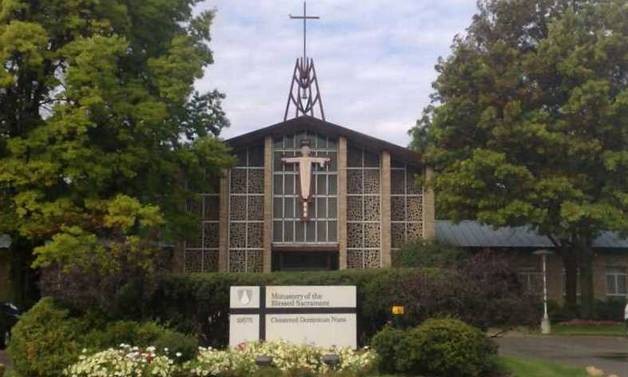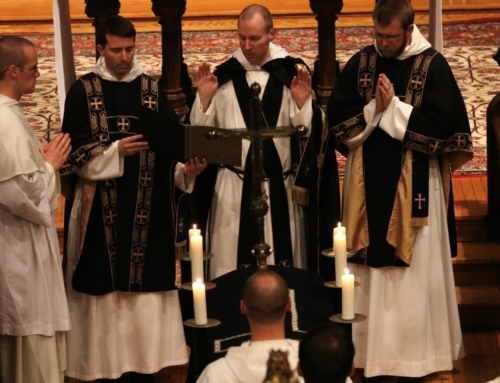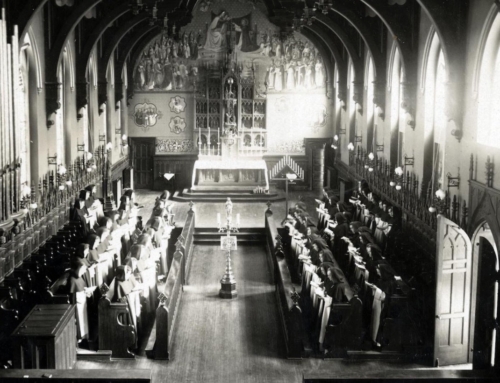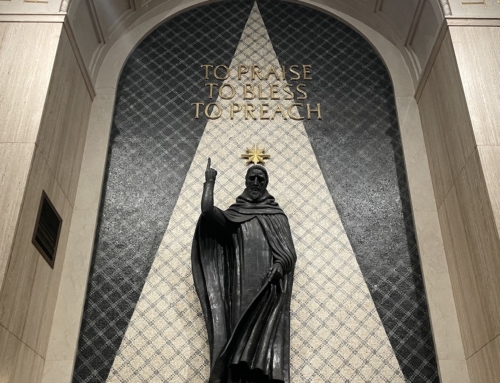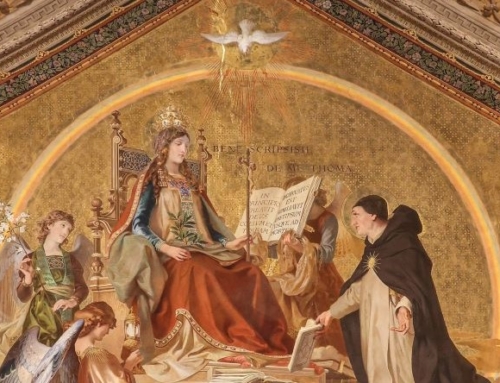Having grown up one mile away from the Monastery of the Blessed Sacrament in Farmington Hills, Michigan, I would love to say that I made numerous trips to pray in the monastery chapel. Unfortunately, I cannot make such a claim. And while I wish I had visited more often, I suppose an important truth can be grasped from my lack of contact with the Dominican nuns. Ultimately the life of a cloistered religious is a hidden witness and one that cultivates great faith well outside their walls.
In 1906, marking the 700th anniversary of the Dominican nuns, seven sisters from the Monastery of St. Dominic in Newark, NJ came to Detroit to establish the Monastery of the Blessed Sacrament. Sixty years later the community took up a new residence in Farmington Hills, a suburb of Detroit. Today the community has 32 sisters, including three novices. One of the novices will be professing her temporary vows this Saturday, April 27th.
Since their founding, the sisters have founded four more Dominican monasteries. Two before the Second Vatican Council in Albany, NY and Lufkin, TX and two since the council. In 1999, the nuns led the way in fulfilling the local desire for an establishment of English speaking cloistered Dominican nuns in British Columbia, Canada. Several years later, in 2002, they began the process of establishing a monastery in Vietnam.
Upon first glance, an outsider might think that all cloistered communities are virtually the same. There is some truth to that since they do share many fundamental principles. For starters, regardless of the Religious Order to which the nuns belong, the cloistered life is a life hidden and consecrated to God. But upon further investigation, differences in emphasis begin to emerge. So what makes a Dominican nun a Dominican? Some traits include, but are not limited to, an emphasis on chanting the Divine Office, study, public recitation of the Rosary, and daily prayers for the deceased. For the Farmington Hills nuns in particular, the community is large enough that they have the rare privilege of being able to continue the tradition of perpetual Eucharistic adoration. There are certainly many aspects of the life that draw women to this particular monastery, but perpetual adoration is often one of the first mentioned.
Whether it regards cloistered nuns, friars, or active sisters a hallmark of Dominican life is joy. That is not to say that joy isn’t present in other religious Orders—because it certainly is—but that joy seems to be at the root of who we are as Dominicans. For the nuns, one source of that joy is from the hidden life of prayer, both private and in the liturgy. But another fundamental source is the community. The life is lived together; it is not merely a collection of individuals seeking their own sanctification. And they will be quick to dispel the myth that the life of a nun is dull and boring. It’s particularly evident during recreations whether they are playing an intense game of pinochle or playing a match of badminton outside during the summer months.
In our present day, however, this way of life is often underappreciated. Many do not even know that such a life is still an option. As such, when a young woman announces her desire to enter, she must often confront various objections. One of the most common is that this way of life appears to some to be a wasted life. They might argue that a week-long silent retreat sounds nice to get away from the world, but for an entire lifetime? Couldn’t you do more good as a mother or as a school teacher shaping children’s lives? Both of which are good and are necessary in the Church.
Whether we are merely outsiders looking in or the nun who is celebrating her 50th anniversary in the community, these questions give us the chance to make an act of faith. We must recognize that God is more powerful than us and He can accomplish much more than we ever could. Since the Dominican nun does not always see the fruit of her prayers, she must make an act of faith every day. It is a great paradox, but by living the cloistered life, she is able to reach more people. She is not limited to the people physically around her. She surrenders her own power to affect people’s lives. Instead she offers herself totally and completely to God and in so doing He affects the world through her hidden life. This is what brings her the greatest joy.
The life of the nuns at the Monastery of the Blessed Sacrament challenges us. Do we really believe in the power of prayer?
✠
Image: Monastery of the Blessed Sacrament in Farmington Hills, Michigan
For more information, please visit the monastery’s website here.

